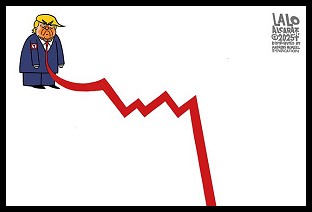READER COMMENTS ON
"MD Republican Guv Demands Paperless Diebold Touch-Screen Voting Machines Be Sent Back to Fed Authorities for More Testing"
(12 Responses so far...)
COMMENT #1 [Permalink]
...
agent99
said on 3/6/2006 @ 2:47 pm PT...
Well, we DO bank on it already! Are our ATM cards this insecure?
WHAT is the obsession with voting machines about? If it were a genuine need, how could there be ANY question of the integrity of the machines produced for this purpose?
I'm banking on my fellow citizens to help insure no one in America loses their vote to this foul play.
COMMENT #2 [Permalink]
...
Savantster
said on 3/6/2006 @ 3:34 pm PT...
I wonder how much it would cost to "lease" citizens in the districts to count the paper ballots..
I'm guessing something MUCH less than $16,000,000.. but that's just my guess..
COMMENT #3 [Permalink]
...
bluebear 2
said on 3/6/2006 @ 3:49 pm PT...
COMMENT #4 [Permalink]
...
Ken Hadfield
said on 3/6/2006 @ 4:45 pm PT...
I will count all the Maryland votes myself and certify them through my accounting firm for only a measly one million dollars. This will save the state 15 million and I will give them a paper trail. If you are serious e-mail me and I will arrange it.
Thanks, ken
COMMENT #5 [Permalink]
...
Arlene Montemarano
said on 3/6/2006 @ 7:11 pm PT...
As far as I am concerned, Erlich's motives are not important really. What he has done is focus attention on a terrible situation whereby voting was becoming a meaningless activity in which no one was sure what became of their vote. An earlier comment wondered what the big deal is. The big deal is that voting is anonymous and therefore completely different from banking.
We need open transparent systems. Anything hidden will invite and almost guarantee hanky panky just because it is so easy to get away with and the stakes are so high.
COMMENT #6 [Permalink]
...
NC Voter
said on 3/6/2006 @ 7:28 pm PT...
Early Voting is fools gold.
Democrats won't learn. Wont.
Like Charlie Brown, Lucy suckers you again, and pulls the football away!
For those of you who are willing to learn, read about North Carolina's many early voting fiascos:
Be prepared for capacity issues. Federal testing does not examine the capacity of the voting machines, and often election officials do not know the limitations of their equipment/systems.
We lost 4,400 votes on one machine in Carteret County during early voting, making us infamous across the country. We had documented uploading problems with early vote ballots in Gaston, Guilford, Mecklenburg and Craven Counties. (All DRE counties).
I do know that our largest county, with about 500,000 registered voters, only had 100 DRES
for early voting, for 10 early voting sites.
*One-Stop No Excuse Voting begins on the first Thursday after the registration deadline (or
19 days before Election Day during the upcoming primary) and ends at 12:00 noon the Saturday before the election.
http://www.app2.sboe.sta...senteeVoting_2006WEB.pdf
In the state of North Carolina for example, many counties use DREs/touchscreen machines for early voting. Most often they don't have enough machines for the sites, and lines are about 2 hours long in waits. The machines are in operation during 13 hours per day for approximately a 17 days period* prior to Election Day.
That's at least 221 hours per DRE. ( 13 X 17 = 221)
For information about how the early voting ballot is not secret, see this web-page:
http://www.ncvoter.net/earlyvoting.html
For information about alot of voting machine malfunctions, many that happened during early voting in North Carolina, see this web-page:
http://www.ncvoter.net/news.html
Complications: In North Carolina, voters can cast their ballots anywhere in their home county.
That means that any one stop or early voting locations must have all of the ballot styles of that county. That could be 80 or more different ballot styles in one location.
Additionally, our law requires that the precinct data be reported. This seems to help the push for DRES, because it is much easier for a DRE to report that then when optical scan are used.
Here are just some of the early voting miscounts for the 2004 General Election
Carteret County
November, 2004. More than 4,500 votes irretrievably lost in coastal Carteret County
could trigger a new statewide election if the official margin of victory in two Council of State
races is close enough, state election officials said Monday.
http://www.votersunite.org/article.asp?id=3760
Guilford County
In Guilford County, ES&S early voting machines had capacity problems, which affected anywhere from 6,000 to 20,000 ballots.
http://www.votersunite.org/article.asp?id=3699
More on the Guilford County incident -
ES&S explained that the Unity 2.2 tally software reached 32,767 (32K) and began subtracting
from the totals (same as in Broward County).
http://www.votersunite.org/info/GuilfordESS.pdf
Mecklenburg County. Early voting machines counted some totals twice affecting as many as 4,000 ballots.
That problem has not yet been corrected. "There are always glitches," McLean said. The basic problem is this: there are more votes than voters.
http://www.votersunite.org/article.asp?id=3697
Craven County. In Craven County, all vote totals in nine of the county's 26 precincts were
electronically doubled, increasing the totals for president by 11,283 more than the number
of votes cast. Correcting the mistake changed the outcome of at least one race.
Automatic warning of double-counting didn't work
http://www.votersunite.org/article.asp?id=3700
Gaston County. About 12,000 votes cast in Gaston County have not yet been counted,
elections director Sandra Page said Tuesday. Page said most early and absentee votes
were not included in the county's unofficial election results because of a procedural error.
The inclusion of the votes in the county's results, expected Tuesday afternoon,
could change the outcome of several local and statewide races
http://www.votersunite.org/article.asp?id=3820
COMMENT #7 [Permalink]
...
Mike Berla
said on 3/7/2006 @ 6:22 am PT...
It's interesting that, among the state's political leadership, the only holdout still supporting (or at least not actively working to get rid of) paperless touchscreen machines in Maryland is the President of the State Senate, Mike Miller. No one has figured out why, although the betting is that it's some kind of misplaced loyalty to the Democratic Director of State Elections, Linda Lamone. And, possibly, to the U.S. Congressman from Miller's area, House Democratic Whip Steny Hoyer, who was a principal sponsor of the Help America Vote Act (HAVA), and who seems to believe that any effort to amend that act is a personal attack on its sponsors.
Miller seems to be influencing the chair of the state senate committee which will have to act on the legislation after it passes the House, Paula Hollinger, to block the bill on the senate side. She needs to be reminded that this obstructionism will hardly help her effort to run for the U.S. House of Representatives this fall.
What a tangled web...
COMMENT #8 [Permalink]
...
Darrell Shahan
said on 3/7/2006 @ 10:04 pm PT...
I commend the governor for wanting fraud-proof voting machines. The problem is they do not exist.
He wants to use paper ballots and optical scanners. The problem there is optical scanners are computers also and they can also have the vote count altered in many different ways. The truth is the safest method of voting is and always will be hand-counted paper ballots. The sooner the country realizes that the better off we will be. Go to www.blackboxvoting.org for various methods of vote altering.
COMMENT #9 [Permalink]
...
Bert Dupree
said on 3/8/2006 @ 9:55 am PT...
We have known over 5 years, that Dibold machines were controlling the Presidential elections. Why has it taken this long to finally address the problem? If the situation remains the same, it would be an insult to one's intelligence, to say voter fraud will not happen again. With record turn out in the last Presidential election, I am sure there will be many who will throw up their hands, and not vote, this time.
COMMENT #10 [Permalink]
...
Olatunji Mwamba
said on 3/8/2006 @ 4:11 pm PT...
Isn't it interesting that the MD. Governor now wants a paper trail. Yet, he is the one who advocated and brought about this mess in the first place. He is the one who ignored two Johns Hopkins University Studies that warned that the DIEBOLD voting machines could be hacked into and compromised, three years ago. I now question and everyone else should question what are his motives now?
COMMENT #11 [Permalink]
...
Dredd
said on 3/9/2006 @ 5:43 am PT...
We must give people room to change their direction.
Give the governor a change to realize that voting machines are a great risk and a great place for fraud to take place.
As they go in the right direction, compliment them, and move on to even better things.
One day we may get back to humane political dialoge and truly honest american elections.
But to do that we must allow people to change and forgive mistakes about voting machines in the past.
That does not apply to republicans in congress this election. Vote them out lock, stock and barrel (lock-step and barrel).
COMMENT #12 [Permalink]
...
notebooki
said on 5/2/2006 @ 5:30 am PT...
I am very interested this theme, with attention I will read following informations.
 Maryland's Republican Governor Ehrlich continues to face the music about the Diebold voting machines that his state bought into hook, line and sinker (emphasis on sinker). He's been had by Diebold's use of the state as a "showcase", but at least he now seems brave enough to admit it, even while the Diebold dead-enders (like State Elections Board Chairman Gilles W. Burger and Democratic Election Administrator Linda H. Lamone who brokered the deal) are trying to hang on to the very last.
Maryland's Republican Governor Ehrlich continues to face the music about the Diebold voting machines that his state bought into hook, line and sinker (emphasis on sinker). He's been had by Diebold's use of the state as a "showcase", but at least he now seems brave enough to admit it, even while the Diebold dead-enders (like State Elections Board Chairman Gilles W. Burger and Democratic Election Administrator Linda H. Lamone who brokered the deal) are trying to hang on to the very last.

 'Green News Report' 4/22/25
'Green News Report' 4/22/25
 Pope Francis Dies,
Pope Francis Dies, Sunday
Sunday  Sunday 'Zero Day' Toons
Sunday 'Zero Day' Toons Soc. Sec. Expert Warns DOGE Hastening Collapse, Privati-zation: 'BradCast' 4/10/2025
Soc. Sec. Expert Warns DOGE Hastening Collapse, Privati-zation: 'BradCast' 4/10/2025 'Green News Report' 4/10/25
'Green News Report' 4/10/25 Trump Blinks, Chaos Reigns, Markets Spike as Many Tariffs Remain Despite 90-Day 'Pause': 'BradCast' 4/9/25
Trump Blinks, Chaos Reigns, Markets Spike as Many Tariffs Remain Despite 90-Day 'Pause': 'BradCast' 4/9/25 SCOTUS Deportation Ruling Grimmer Than First Appears: 'BradCast' 4/8/25
SCOTUS Deportation Ruling Grimmer Than First Appears: 'BradCast' 4/8/25 'Green News Report' 4/8/25
'Green News Report' 4/8/25 Cliff Diving with Donald: 'BradCast' 4/7/25
Cliff Diving with Donald: 'BradCast' 4/7/25 Sunday 'Don't Look Down' Toons
Sunday 'Don't Look Down' Toons 'Green News Report' 4/3/25
'Green News Report' 4/3/25 'Mob Boss' Trump's Trade Sanctions Tank U.S., World Markets: 'BradCast' 4/3/25
'Mob Boss' Trump's Trade Sanctions Tank U.S., World Markets: 'BradCast' 4/3/25 Crawford Landslide in WI; Booker Makes History in U.S. Senate: 'BradCast' 4/2/25
Crawford Landslide in WI; Booker Makes History in U.S. Senate: 'BradCast' 4/2/25 Judge Ends Challenge to GA's Unverifiable, Insecure Vote System: 'BradCast' 4/1/25
Judge Ends Challenge to GA's Unverifiable, Insecure Vote System: 'BradCast' 4/1/25 Bad Court, Election News for Trump is Good News for U.S.: 'BradCast' 3/31
Bad Court, Election News for Trump is Good News for U.S.: 'BradCast' 3/31 Vets Push Back at Plan to Slash Health Care, 80K V.A. Jobs: 'BradCast' 3/27/25
Vets Push Back at Plan to Slash Health Care, 80K V.A. Jobs: 'BradCast' 3/27/25 Signal Scandal Worsens for Trump, GOP; Big Dem Election Wins in PA: 'BradCast' 3/26
Signal Scandal Worsens for Trump, GOP; Big Dem Election Wins in PA: 'BradCast' 3/26 'Emptywheel': Trump NatSec Team Should 'Resign in Disgrace': 'BradCast' 3/25/25
'Emptywheel': Trump NatSec Team Should 'Resign in Disgrace': 'BradCast' 3/25/25 USPS 'Belongs to the People, Not the Billionaires': 'BradCast' 3/24/25
USPS 'Belongs to the People, Not the Billionaires': 'BradCast' 3/24/25
 VA GOP VOTER REG FRAUDSTER OFF HOOK
VA GOP VOTER REG FRAUDSTER OFF HOOK Criminal GOP Voter Registration Fraud Probe Expanding in VA
Criminal GOP Voter Registration Fraud Probe Expanding in VA DOJ PROBE SOUGHT AFTER VA ARREST
DOJ PROBE SOUGHT AFTER VA ARREST Arrest in VA: GOP Voter Reg Scandal Widens
Arrest in VA: GOP Voter Reg Scandal Widens ALL TOGETHER: ROVE, SPROUL, KOCHS, RNC
ALL TOGETHER: ROVE, SPROUL, KOCHS, RNC LATimes: RNC's 'Fired' Sproul Working for Repubs in 'as Many as 30 States'
LATimes: RNC's 'Fired' Sproul Working for Repubs in 'as Many as 30 States' 'Fired' Sproul Group 'Cloned', Still Working for Republicans in At Least 10 States
'Fired' Sproul Group 'Cloned', Still Working for Republicans in At Least 10 States FINALLY: FOX ON GOP REG FRAUD SCANDAL
FINALLY: FOX ON GOP REG FRAUD SCANDAL COLORADO FOLLOWS FLORIDA WITH GOP CRIMINAL INVESTIGATION
COLORADO FOLLOWS FLORIDA WITH GOP CRIMINAL INVESTIGATION CRIMINAL PROBE LAUNCHED INTO GOP VOTER REGISTRATION FRAUD SCANDAL IN FL
CRIMINAL PROBE LAUNCHED INTO GOP VOTER REGISTRATION FRAUD SCANDAL IN FL Brad Breaks PA Photo ID & GOP Registration Fraud Scandal News on Hartmann TV
Brad Breaks PA Photo ID & GOP Registration Fraud Scandal News on Hartmann TV  CAUGHT ON TAPE: COORDINATED NATIONWIDE GOP VOTER REG SCAM
CAUGHT ON TAPE: COORDINATED NATIONWIDE GOP VOTER REG SCAM CRIMINAL ELECTION FRAUD COMPLAINT FILED AGAINST GOP 'FRAUD' FIRM
CRIMINAL ELECTION FRAUD COMPLAINT FILED AGAINST GOP 'FRAUD' FIRM RICK SCOTT GETS ROLLED IN GOP REGISTRATION FRAUD SCANDAL
RICK SCOTT GETS ROLLED IN GOP REGISTRATION FRAUD SCANDAL VIDEO: Brad Breaks GOP Reg Fraud Scandal on Hartmann TV
VIDEO: Brad Breaks GOP Reg Fraud Scandal on Hartmann TV RNC FIRES NATIONAL VOTER REGISTRATION FIRM FOR FRAUD
RNC FIRES NATIONAL VOTER REGISTRATION FIRM FOR FRAUD EXCLUSIVE: Intvw w/ FL Official Who First Discovered GOP Reg Fraud
EXCLUSIVE: Intvw w/ FL Official Who First Discovered GOP Reg Fraud GOP REGISTRATION FRAUD FOUND IN FL
GOP REGISTRATION FRAUD FOUND IN FL


































